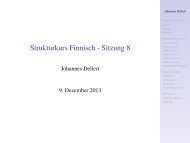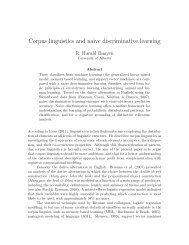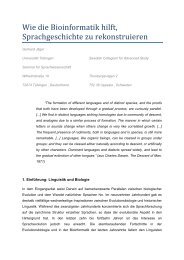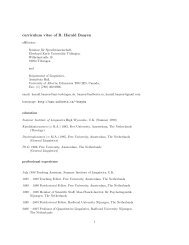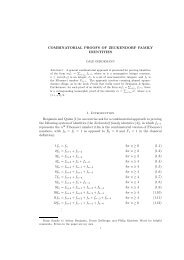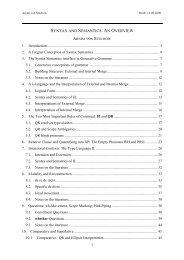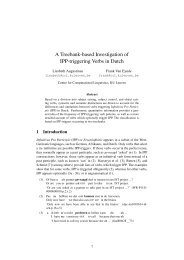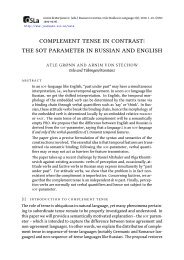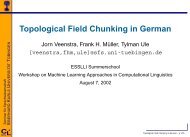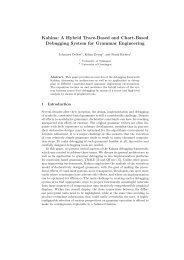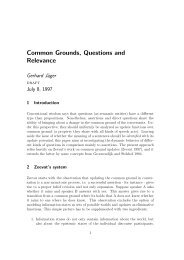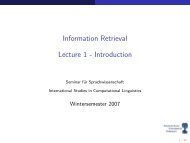Aufgabe 1 a) The:D old:A rusty:A pot-belly:A stove:N has:T been:T ...
Aufgabe 1 a) The:D old:A rusty:A pot-belly:A stove:N has:T been:T ...
Aufgabe 1 a) The:D old:A rusty:A pot-belly:A stove:N has:T been:T ...
Create successful ePaper yourself
Turn your PDF publications into a flip-book with our unique Google optimized e-Paper software.
<strong>Aufgabe</strong> 1<br />
a) <strong>The</strong>:D <strong>old</strong>:A <strong>rusty</strong>:A <strong>pot</strong>-<strong>belly</strong>:A <strong>stove</strong>:N <strong>has</strong>:T <strong>been</strong>:T replaced:V<br />
b) <strong>The</strong>:D red-haired:A assistant:N put:V the:D vital:A documents:N through:P the:D new:A efficient:A<br />
shredder:N<br />
c) <strong>The</strong>:D large:A evil:A leathery:A alligator:N complained:V to:P his:D aging:A keeper:N about:P<br />
his:D extremely:A unattractive:A description:N<br />
d) I:N 've:T just:A eaten:V the:D last:A piece:N of:P chocolate:A cake:A<br />
<strong>Aufgabe</strong> 2<br />
[Anmerkung: Hier sind mehrere plausible Antworten möglich.]<br />
1) In sentence a, is Qu:as functioning as a verb or a noun? Nomen<br />
2) In sentence a, is Mamu:k functioning as a verb or a noun? Verb<br />
3) In sentence b, is Qu:as a verb or a noun? Nomen<br />
4) In sentence b, is Mamu:k a verb or a noun? Verb<br />
5) What criteria did you use to tell what is a noun in Nootka and what is a<br />
verb?<br />
• morphologisch: Verben haben Temups-Suffix („-ma“) und Nomen Definitheits-Suffix („-?i“)<br />
• syntaktisch: Subjekt steht (den Beispielsätzen nach zu urteilen) in Nootka nach dem Prädikat;<br />
Nomen können Subjekt sein, aber Verben nicht.<br />
6) How does this data support the idea that there are no semantic criteria involved in determining the<br />
part of speech? Beide Wortstämme („mamu:k“ und „qu:?as“) können sowohl als Nomen als<br />
auch als Verb auftreten.<br />
<strong>Aufgabe</strong> 3<br />
a) very smelly<br />
b) too quickly<br />
c) much too quickly<br />
d) very much too quickly<br />
e) the <strong>old</strong> shoelace
f) the soggy limp spaghetti noodle<br />
g) these very finicky children




